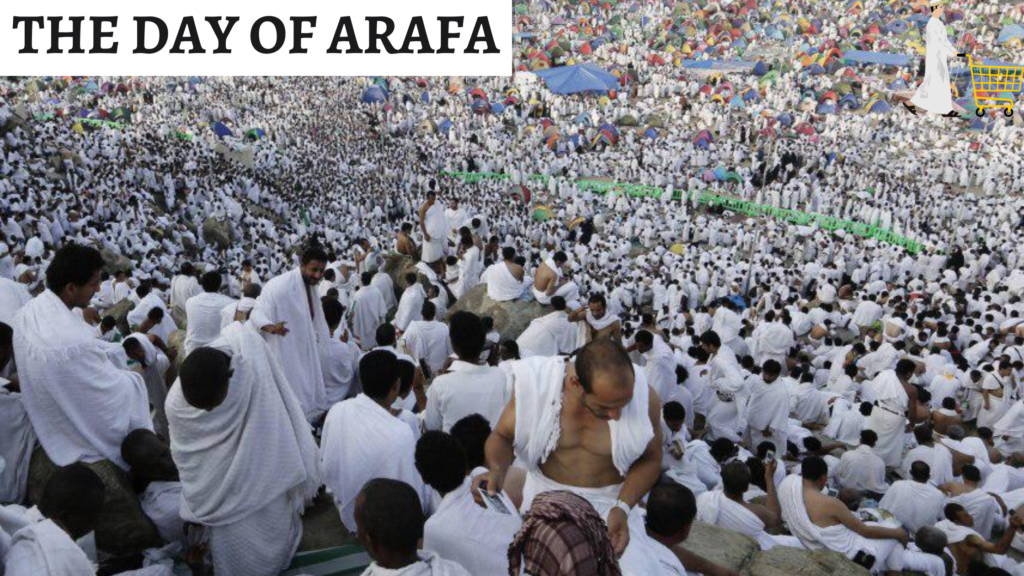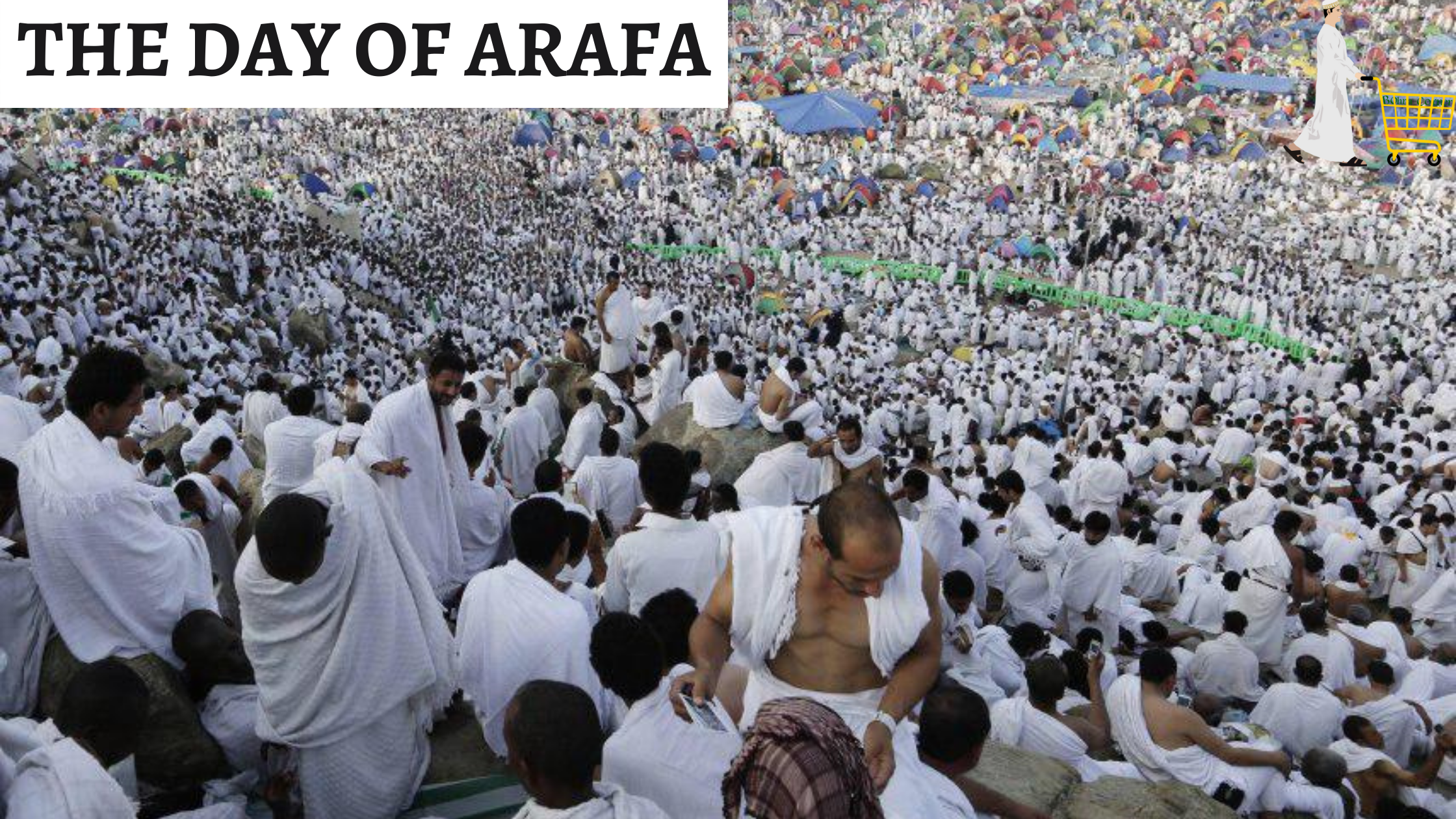THE DAY OF ARAFAH
The Day of Arafah (Yawm ‘Arafah) is an Islamic holiday that falls on the 9th day of ZILHAJJ JATIL HARA’AM and the day before Eid al-Adha of the Hijri Islamic Calendar. It is the holiest day in the Islamic calendar (the holiest night being The Night of Power), the second day of the Hajj pilgrimage, and the day after is the first day of the major Islamic holiday of Eid al-Adha. At the dawn of this day, Muslim pilgrims will make their way from Mina to a nearby hillside and plain called Mount Arafat and the Plain of Arafat.
From this site, the Islamic prophet Muhammad gave one of his last sermons in the final year of his life. Some Muslims hold that part of the Quranic verse announcing that the religion of Islam had been perfected was revealed on this day.

LOCATION
Mount Arafah is a granite hill about 20 km (12 mi) southeast of Mecca in the plain of Arafat. Mount Arafat reaches about 70 m (230 ft) in height and is known as the “Mountain of Mercy” (Jabal ar-Rahmah). According to Islamic tradition, the hill is where Muhammad stood and delivered the Farewell Sermon to the Muslims who had accompanied him for the Hajj towards the end of his life.
ARAFAH PRAYER
Imam Husayn ibn Ali recited the prayer during the Hajj at Mount Arafat on 9th JIL HAJJ JATIL HARA’AM, Shia Muslims during the Hajj recite the Arafah prayer from Zuhr prayer to sunset. This day is called prayer day, especially for people who stand on Mount Arafat. On the Day of Arafah, those who cannot make it to Mecca will go to other holy places such as mosques to recite the Arafah prayer.
Fasting on the Day of Arafah
Fasting on the Day of Arafah for non-pilgrims is a highly recommended Sunnah that entails a great reward; Allah forgives the sins of two years. It was narrated from Abu Qatadah that Muhammad was asked about fasting on the day of ‘Arafah and he replied:

It expiates for the past and coming years.
Imam An-Nawawi mentioned in his book al-Majmu’, “With regard to the ruling on this matter, Imam As-Shafi’i and his companions said: It is mustahabb (recommended) to fast on the day of Arafah for the one who is not in Arafah. As for the pilgrim who is present in Arafah, Imam As-Shafi’i in his book Al-Mukhtasar and his followers declared
‘It is mustahabb (recommended) for him not to fast.”
Prohibiting the pilgrims from fasting on these days is a great mercy for them, for fasting will exert undue hardship on the person performing the hajj. Above all, Muhammad did not fast while he stood before Allah offering supplications in Arafah. On the other hand, those who are not performing their hajj may observe fasting to gain the merits of the blessed day.

